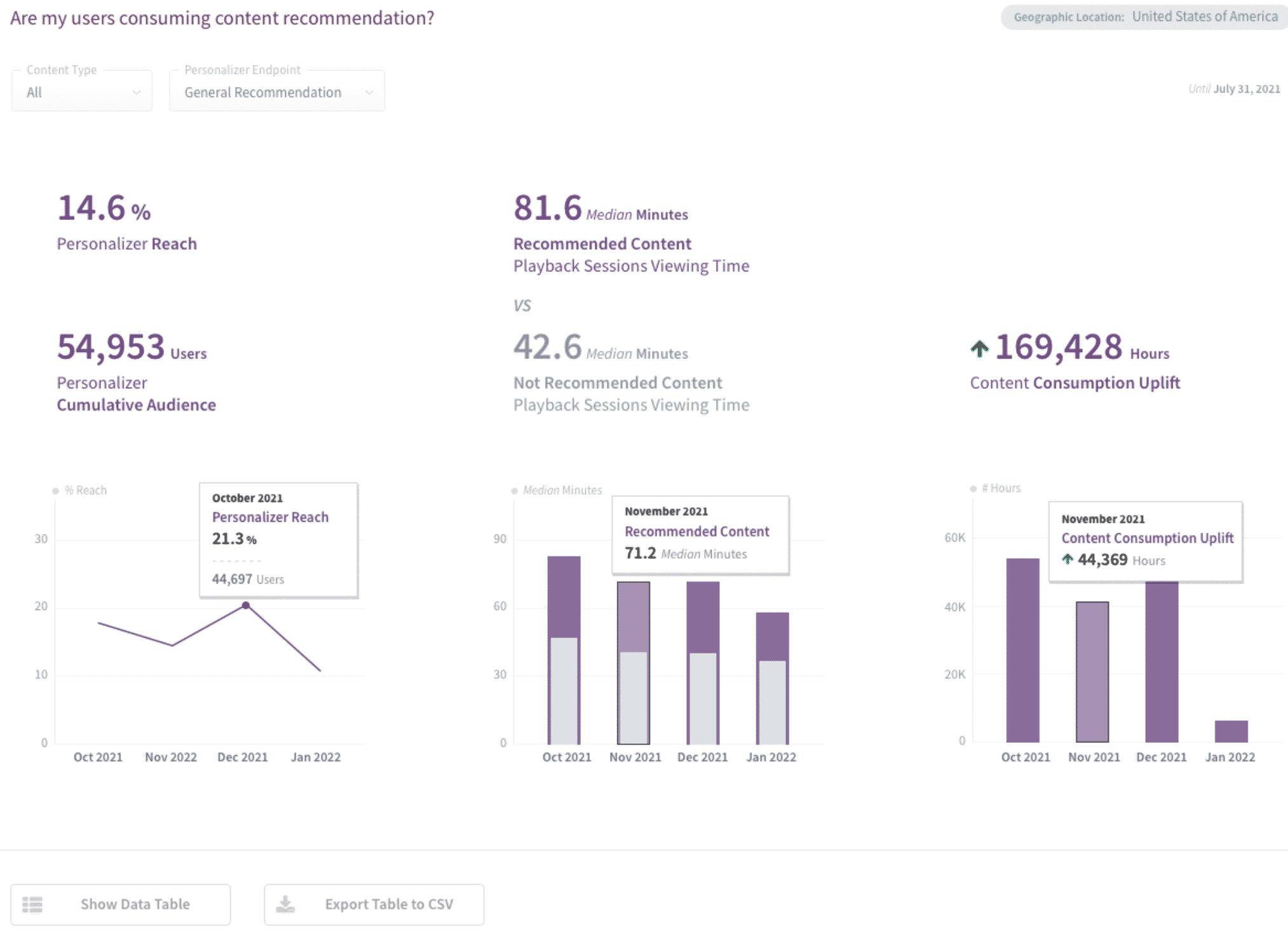Recommendations have become a tipping point for any video service’s strategy to succeed. Without the capability of recommending the right content at the right time to your users, their experience on your platform suffers, their engagement decreases, and churn increases, thus plateauing your growth. In the end, subscribers’ fatigue in OTT services is one of the main reasons for subscribers to leave your video services.
In this blog, we will explain what features and metrics a recommendation engine must have to be successful.
What is a Recommendation Engine?
A recommendation engine is an essential part of a streaming service. Their objective is to help subscribers find the right movie, show, or program at the right moment, in the right place. Ultimately, it is a tool to retain users on your platform, reducing their time to find the content.
Powered by Artificial Intelligence and combined with the knowledge and expertise on recommendation engines of your content editorial team, you can get the most from your content catalog by delivering personalized entertainment experiences to your audience.
Must-Have Features and Metrics for your OTT Recommendation Strategy
AI-Based features
- Contextual Recommendation: Individualized recommendations per subscriber depending on the context of the user (time of day, device, or day of the week, among others).
- Because You Watch: Based on similarity index between different items from your content catalogue by using its content metadata, audio and video intrinsic characteristics, tags, etc.
- Cold-Start Recommendations: Location-based recommendations, content popularity, and basic demographic data for users that just joined your video service.
Editorial tools
- Editorial Recommendation: Weight given to a specific category to prioritize among others (i.e., your platform’s own content).
- Blacklist: A list of content excluded from the content recommendation pool.
- Next Episode of a Series: Incentivization to binge-watch more content from the same series.
- Trending Now: Content trending in your region, device, timeframe, among others.
- New Releases: Recently-released content.
- Continue Watching: Content that you had already started watching.
- Watch Again: Content you watched that might be interesting for you to re-watch.
Why is it important to analyze your recommendation’s performance?
Any solution or strategy implementation has no meaning if their results aren’t analysed. Knowing how recommendations are performing helps you understand if they are working properly and how to optimize them, if your user’s experience is being positively impacted by them, and, finally, if it was worth the investment.
That’s why at JUMP Data-Driven Video, we provide to our JUMP Personalizer’s customers a set of insights called Personalizer Performance to understand if their recommendation strategy is performing in the front-end apps, and what percentage of the audience it reaches, monthly. There, we look at 5 metrics to measure the functionality of our JUMP Personalizer.

Personalizer Reach
It is used to measure the percentage of users the recommendation engine has reached on the platform, meaning those who have watched at least a singular content that has been recommended to them.
Personalizer Cumulative Audience
This indicates the number of users that have watched at least a singular content that has been recommended to them.
Playback Session Viewing Time
This is the median number of minutes of recommended content that users have watched in contrast to the median number of minutes of not-recommended content that users have watched.
Personalizer Consumption Lift
Refers to the number of hours on content consumption that has increased due to the fact of having recommended content on the platform.
If you want to learn more on JUMP Personalizer or the metrics used to analyze your recommendation, click here to schedule a Free Content Personalization Workshop with our experts at JUMP, or click below to learn more on personalization.

